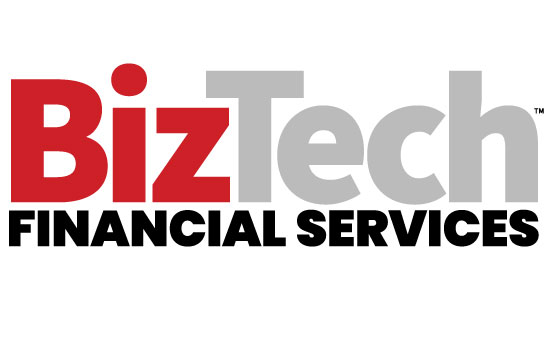20/20 Visionary Part 2
In the preview issue of BizTech, Editor in Chief Lee Copeland spoke with CDW's founder, Michael Krasny, about what it took to launch an upstart computer reseller business back in 1985. No stranger to the workings of a small business, Krasny grew up watching his father grow his own automobile dealership in Buffalo Grove, Ill. Before launching CDW, Krasny cycled through a number of viable business "concepts," including a hardware store, a pre-PC, pre-Internet system for using touch-tone phones to get stock quotes and, not surprisingly, an automobile dealership. None of those ideas panned out. And when faced with getting a "real" job or making a business model work, Krasny happened to sell a used computer and actually made a couple hundred bucks profit on the transaction. "Then someone else came along and said he would have liked to buy it," Krasny recalls. "So I said 'I'll get another one.' I bought another computer and delivered it to him, and made another $200."
Read Part 1: 20/20 Visionary
Krasny didn't realize it then, but he'd written two key chapters in the CDW success story by making those inaugural sales. He launched a business for which he already possessed great expertise and passion—the emerging business-to-business technology sector for small businesses. At the same time, he leveraged an inherent personal attribute—his passion for understanding people, processes and systems, and interacting with IT leaders and business managers to assist them in making their own business a success.
Krasny ran the company until it grew into a publicly traded technology powerhouse, which posted more than $5 billion in annual sales. Still, Krasny stepped down as CDW Corp.'s CEO in 2001, and then as chairman several months later. In the second part of BizTech's interview with Krasny, we asked him about some of the tough decisions that many small business owners, managers and IT leaders face as they grow their businesses.
Copeland: Any growing business has to adopt policies for the way it operates, including policies on telecommuting and community involvement. What's your advice for a business owner who is tackling this issue?
Krasny: I hope I can say this correctly. Anybody who isn't a socialist when they are under 30 doesn't have a heart. Anybody who isn't a capitalist when they are 40 doesn't have a brain. But then you eventually come back to being a socialist. We start out as young people and are community oriented. Then we become very business oriented. And hopefully, we come back to wanting to give something back to the community. In the early days at CDW, we were so focused on succeeding that we didn't have time to pay attention to helping the community. I will defend that. The mission at the time was not to make a better community; it was to build a business. Once we made that business, we had the wherewithal, bandwidth and means to help the community. But when a business is starting out, defining what it does well and establishing itself, the community should not be the focus. Growing the business and understanding the business should be the focus.
Copeland: Many small businesses are looking into telecommuting because it reduces the overhead of remote offices and allows them to recruit better people. CDW has never been an advocate of allowing employees to work from home. What are your thoughts on teleworking?
Krasny: I have never been a big supporter of telecommuting. We've had a number of people at the company who tried to enlist my support for telecommuting. But when you telecommute, you are no longer part of the organization. You are one person. That doesn't mean there can't be occasions when you work from home. But it should not be a regular practice. I remember being at home with a cold about six or seven years ago and I participated in a conference call. It wasn't the same as being there. You don't get the people's visual contact, you don't get the eye contact and you don't get the body language that comes along with it. That's why I am not a believer in telecommuting. You lose those impromptu meetings; you lose those inflection points and those interactions. How many times do you have an impromptu meeting in the hallway or the cafeteria? With telework, that doesn't happen.
Copeland: What kinds of reward programs work best for employees?
Krasny: I grew up in the old school. My father taught me to give bonuses at year-end. But it should go beyond bonuses. You show love. You take care of people. You make your business so good that your people would rather stay with you than go down the street.
Copeland: A number of growing businesses say that technologists are being pushed out of top management positions. Who should be heading the IT operations of a small business: a businessperson or a technologist?
Krasny: You have to have one person with both perspectives. The person has to be able to look at the business and see what it needs in order to be more efficient. And that person needs to be able to figure out how to use technology to do it. So, a businessperson without technology knowledge is no good; and a technologist without business knowledge isn't any good.
Copeland: Is it possible to set up some type of mentoring system that would foster this combined expertise in people? How do these people get the training that they need?
Krasny: They get it from experience. They get it from being open-minded and being able to say "what if?" My favorite advertising campaign of any company was Hewlett-Packard's "what if?" campaign. "What if we can make computers print orders automatically?" How efficient would that make us? And then we can figure out if we can do it. "What if we can get a computer to add rows of numbers together to save us that hassle?" "What if we can get a computer to answer the phone instead of an operator?" Anything that has ever started in an IT infrastructure or in an automation process has started with the question "what if?"
Copeland: But "what if" there aren't any mentors available?
Krasny: You don't need to be around someone for them to be a mentor. You can learn from afar. There were many people who had certain skills that I admired and whom I learned from—people whom I had never met. It's possible to learn from an individual without having day-to-day interaction with them.
Copeland: Once the organization starts to grow, how should business owners determine which areas of the business deserve their focus and which are left to lower-level managers?
Krasny: Think of the business process as a hose. Data comes in through one end of the hose and goes out through the other. If you have a little narrowing in the hose, you have less output. You must understand what raw data comes into the organization and what output goes out of the organization. Today, I am on the board, and the details I pay attention to are very different from those that I would have paid attention to five years or 15 years ago. You have to pay attention to the entire operation and pick the places where your intensity will do the most good at any given time.
Copeland: As the organization grows, how do you keep executive managers focused on the customer, and not just hitting numbers and refining processes?
Krasny: Early on, after our first national ad appeared, the phones just started ringing. I remember that shortly after that ad appeared I had to make a very quick decision—whether to offer quality service at an expense or just look to maximize how much we could make in the short term. I thought I could make the business last longer and grow into a sustainable entity with quality service.
Copeland: And that keeps the customer coming back?
Krasny: People do business with people they like. That is one of the reasons we have excelled in small- to medium-sized businesses, because the small business realm takes a different type of customer attention than the enterprise-type business requires. That is why we have created an enterprise sales force that goes and calls on these larger accounts. It is what is necessary to maintain a relationship. You have to give the customers a reason to be loyal to you and to keep coming back to your business.
Copeland: What is the secret formula to making a business a success?
Krasny: The ingredients are your accounting, sales, marketing, distribution, customer service, plus the culture of the business. The formula is in putting them all together in the execution. Building a business is much like baking a cake. If you leave a key ingredient like eggs out of the cake, what happens? It is not going to taste very good. If you leave flour out of the cake, what is going to happen? It is not going to taste very good. If you don't have that sugar or vanilla or frosting, it is not going to be very good. Building a business is the same way. A business is made up of many ingredients. You have to constantly look at the recipe, and the ingredients that you put into it, to make a success.







